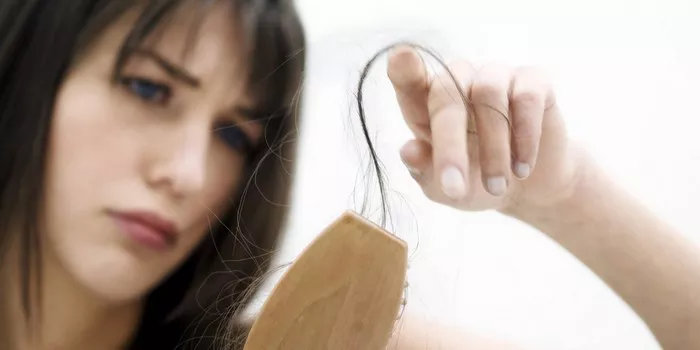Hair fall is a common concern affecting millions of people worldwide. While various factors contribute to this issue, including genetics, stress, and hormonal imbalances, diet plays a crucial role in maintaining healthy hair. Understanding the relationship between nutrition and hair health can empower individuals to make informed dietary choices that may help prevent excessive hair loss. In this comprehensive guide, we will explore the best diet practices to minimize hair fall and promote stronger, thicker hair.
Understanding the Link Between Diet and Hair Fall
Before delving into specific dietary recommendations, it’s essential to comprehend how nutrition impacts hair health. Hair follicles require a steady supply of nutrients to support their growth and maintenance. Deficiencies in key vitamins, minerals, and other essential nutrients can lead to weakened hair follicles, resulting in increased shedding and hair loss.
Moreover, certain dietary components can either promote or inhibit hair growth. For instance, diets rich in antioxidants and protein can support hair follicle health, while excessive consumption of processed foods and sugary snacks may contribute to inflammation and oxidative stress, exacerbating hair fall.
With this understanding in mind, adopting a balanced and nutrient-rich diet can be a proactive approach to addressing hair fall concerns. Let’s explore the specific dietary components that can support optimal hair health.
Essential Nutrients for Healthy Hair
1. Protein: Hair is primarily composed of a protein called keratin, making adequate protein intake essential for maintaining strong and resilient hair. Incorporate lean sources of protein such as poultry, fish, eggs, legumes, and tofu into your diet to support hair growth and minimize breakage.
2. Iron: Iron deficiency is a common cause of hair loss, as it plays a crucial role in the production of red blood cells, which carry oxygen to the hair follicles. Include iron-rich foods such as lean red meat, spinach, lentils, and fortified cereals in your meals to prevent hair fall associated with iron deficiency anemia.
3. Omega-3 Fatty Acids: Omega-3 fatty acids help nourish the scalp and support healthy hair follicles. Incorporate sources of omega-3s such as fatty fish (salmon, mackerel, sardines), flaxseeds, chia seeds, and walnuts into your diet to promote hair growth and reduce inflammation.
4. Vitamins A, C, and E: These vitamins are powerful antioxidants that help protect hair follicles from oxidative stress and promote collagen production, which is essential for maintaining hair strength and elasticity. Consume a variety of fruits and vegetables rich in vitamins A (carrots, sweet potatoes), C (citrus fruits, bell peppers), and E (almonds, sunflower seeds) to support overall hair health.
5. Biotin (Vitamin B7): Biotin is often referred to as the “hair vitamin” due to its role in supporting healthy hair growth. While biotin deficiency is rare, increasing your intake of biotin-rich foods such as eggs, nuts, seeds, and whole grains may help improve hair strength and thickness.
6. Zinc: Zinc deficiency has been linked to hair loss, as it plays a crucial role in DNA and protein synthesis, including those involved in hair follicle development. Incorporate zinc-rich foods such as oysters, beef, pumpkin seeds, and lentils into your diet to support optimal hair growth and prevent hair fall.
Foods to Avoid or Limit
While certain nutrients support healthy hair growth, certain dietary habits and food choices may exacerbate hair fall. Consider reducing or eliminating the following from your diet:
1. Sugary Foods and Beverages: High-sugar diets can contribute to inflammation and insulin resistance, which may negatively impact hair follicle health. Limit your intake of sugary snacks, sodas, and processed foods to support overall hair health.
2. Processed Foods: Processed foods often contain unhealthy fats, additives, and preservatives that can contribute to inflammation and oxidative stress in the body, potentially affecting hair growth. Opt for whole, unprocessed foods whenever possible to provide your body with essential nutrients and minimize exposure to harmful additives.
3. Excessive Alcohol Consumption: Alcohol can dehydrate the body and impair nutrient absorption, potentially affecting hair follicle health. Limit your alcohol intake and ensure adequate hydration to support overall hair health.
4. Caffeine: While moderate caffeine consumption is generally considered safe, excessive intake may interfere with nutrient absorption and contribute to dehydration, which can impact hair health. Monitor your caffeine intake and ensure adequate hydration to minimize potential negative effects on hair follicles.
The Importance of Hydration
In addition to dietary factors, hydration plays a crucial role in maintaining healthy hair. Dehydration can lead to dry, brittle hair that is more prone to breakage and shedding. Aim to drink plenty of water throughout the day to keep your body and hair adequately hydrated. Additionally, consider incorporating hydrating foods such as water-rich fruits and vegetables (cucumbers, watermelon, tomatoes) into your diet to support optimal hydration from within.
The Role of Stress Management
While diet plays a significant role in combating hair fall, it’s essential to address underlying stress levels, as chronic stress can contribute to hair loss. Practice stress-reducing techniques such as mindfulness, meditation, yoga, and regular exercise to promote overall well-being and minimize the impact of stress on hair health.
Consultation with a Healthcare Professional
If you’re experiencing significant or persistent hair loss, it’s crucial to consult with a healthcare professional to identify any underlying medical conditions and develop a personalized treatment plan. A dermatologist or trichologist can assess your hair and scalp health, conduct necessary tests to identify any deficiencies or imbalances, and recommend appropriate interventions, including dietary modifications, supplements, or medical treatments.
Conclusion
In conclusion, adopting a balanced and nutrient-rich diet is essential for maintaining healthy hair and minimizing hair fall. By incorporating protein, iron, omega-3 fatty acids, vitamins, and minerals into your meals while avoiding or limiting sugary, processed, and inflammatory foods, you can support optimal hair follicle health and promote stronger, thicker hair growth. Additionally, prioritizing hydration, stress management, and seeking professional guidance when needed can further enhance your efforts to combat hair fall and achieve vibrant, resilient hair.


